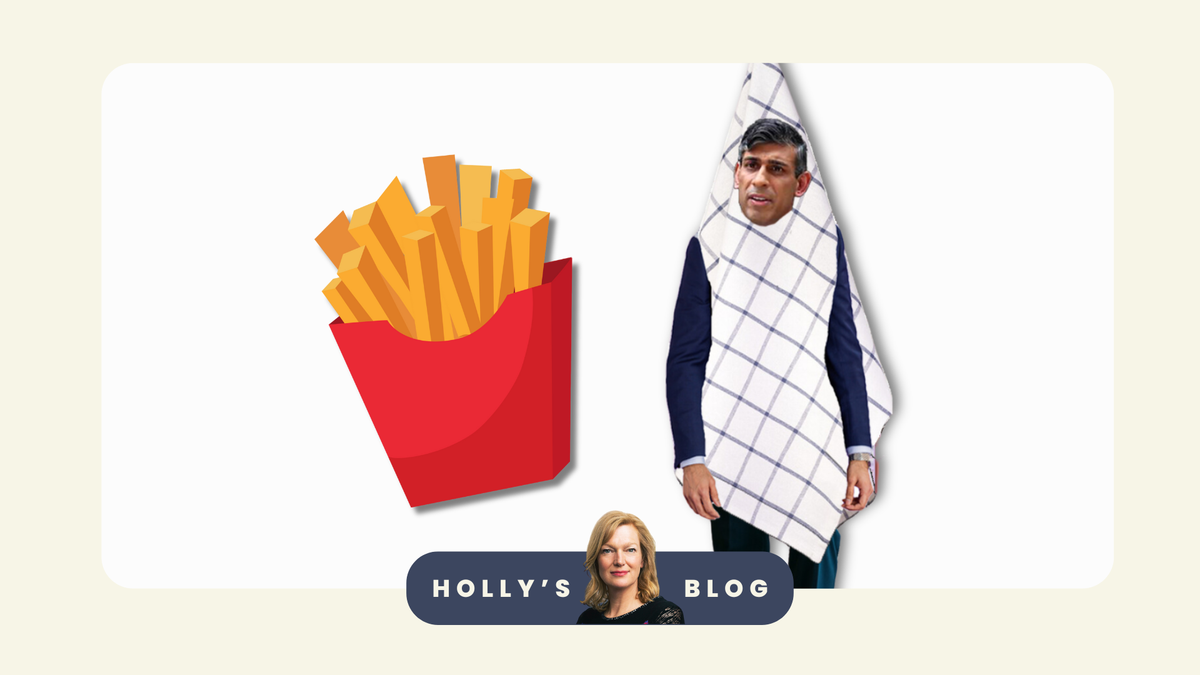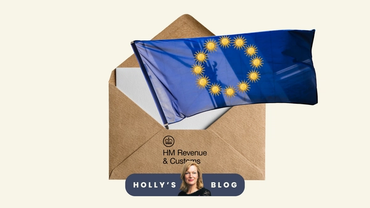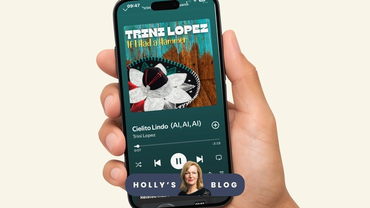A Wet Rish-cloth and a Hot Chip
By Holly Mackay, Founder & CEO
24 May, 2024

And we’re off! On Wednesday a soggy Prime Minister fired the starting pistol for a general election as some got excited and others wanted to hide in a dark room. Before I turn to the financial implications of this, in other news, this week chip-maker Nvidia announced blistering earnings which injected yet more Viagra into an already perky Mr S&P.
Nvidia’s revenue jumped 262% in the first quarter as they brought in $26 billion at the tills. Blimey. Those chips are hot. The firm is now worth more than Google parent Alphabet or Amazon, and nipping at the heels of Apple and Microsoft. It was like watching Mo Farah winning a marathon, but winning it with a time of 1 hour – you expect excellence but you got excellence squared.
It’s an interesting reflection of the modern foundations of global financial markets that one tech company’s earnings announcement has more impact on markets than falling inflation in the UK and news of a general election. And so in one sense AI is already more powerful than Government.
Don’t panic if you don’t think you own the shares because you will. Indirectly in your pension or ISA. Unless you have very deliberately tried to avoid them.
Closer to home, the oily, tobacco-y, bank-y, druggy FTSE 100 is marching on next to its more hip American cousin (despite anticipated falls today on the back of limp April retail sales numbers). If you needed proof that UK shares are currently cheap, then this week a consortium of private equity firms made a bid for Hargreaves Lansdown. They were told to naff off, but private equity firms don’t tend to make offers for established things in mature markets which they think are expensive.
The FTSE 100 is cheap, the momentum is up and it pays nice dividends. So that’s our stock exchange – what about our economy?
Taking the temperature in the run-up to the election
We head into what finfluencers will inevitably call the #GennyLec with the country’s finances on the up but not as fast as we would like. Fuel and food prices have eased and inflation has fallen to 2.3% – a dream after the 11.1% pain in October 2022, but still not quite there. This means the Bank of England will be cautious about freeing things up too soon, so interest rates are unlikely to move until (maybe) August or September.
At the same time, house prices are edging up, many are still kept off the property ladder and those remortgaging don’t have as benign a climate as they will have hoped. And today’s numbers suggest disappointing growth numbers ahead, as retail sales came in under forecasts for April. The general prognosis is rather lukewarm.
What does the #GennyLec mean for the economy?
I read the polls and so assume that – unless Keir Starmer runs around in red spangly Speedos shouting La-La-La for the next 41 days – then Labour will win the election.
Labour’s plans include renationalising the rail network, taking a tougher stance with water companies which could include fines and stripping bonuses, retrofitting more homes with insulation and setting up a Great British Energy company, a publicly-owned clean power firm. The NHS is a tricky one for anyone – Starmer is determined to say he'll stick to tough spending rules whilst cutting waiting lists and freeing up more appointments.
Housing will also be contentious as there are plans for up to 1.5 million new homes, a reformed planning system and fast-tracked urban brownfield sites.
The real challenge for politicians of any hue is that there is no money in the pot and borrowing remains sky high. We can all put lipstick on a pig in written manifestos, but when the porker leaps off a page and you’re there with a real life snorting Large White, the promises are not easy to deliver. For anyone.
And what about our money?
In the short-term, forget about a NatWest share deal unless something very odd goes on. It will happen one day. Just not now. There were plans for the Government to sell its stake bought 16 years ago as the bank hit the skids in the financial crisis. Traders and punters who had been betting on this will have let out a howl as the election was announced and the whole thing is now on pause. The NatWest share price fell from £3.20 to £3.05 after the news.
In the medium-term, parents paying school fees will all be modelling a 20% increase in these and bringing forward when this might land in their household budgets. Labour has said this would be ‘within a year’ but it could be sooner and I’d be budgeting for higher bills plopping though the letterbox from January. And private tutors’ revenue projections will rival Nvidia’s.
It’s also likely that the slightly odd British ISA proposed in the last Budget will not see the light of day.
In the longer-term, pensions are always a low-hanging fruit for tinkering, which is stupidly annoying for anyone trying to plan. Reversing the abolition of the lifetime allowance could well be on the cards. And any party would likely look at increasing the state pension age. If you have a large pension which you're yet to take money from, and have acted in reliance of an abolished lifetime allowance and you’re worried, I would get some one-off financial advice and talk through the scenarios. I know it’s easy for me to say but acting on uncertainty, and second-guessing change, is generally not a good idea.
To sum up, in general, I think we carry on as usual with our savings and investments and there’s no need to tinker, panic or change course. As we saw this week, from an investment perspective, the real power lies elsewhere and the stock market is very capable of marching on, regardless of who stands dripping outside Downing Street.
As we head into this long weekend, I’d like to ask what you think. We have 5 short, simple questions about what you think the election means for your finances. We’d love to hear from our readers and take the temperature – and I’ll report back next week. It would be most appreciated.
Have a super weekend and let’s pray for some sun!
Holly

Want to get Holly's weekly blog straight to your inbox?
Already have an account? Login






